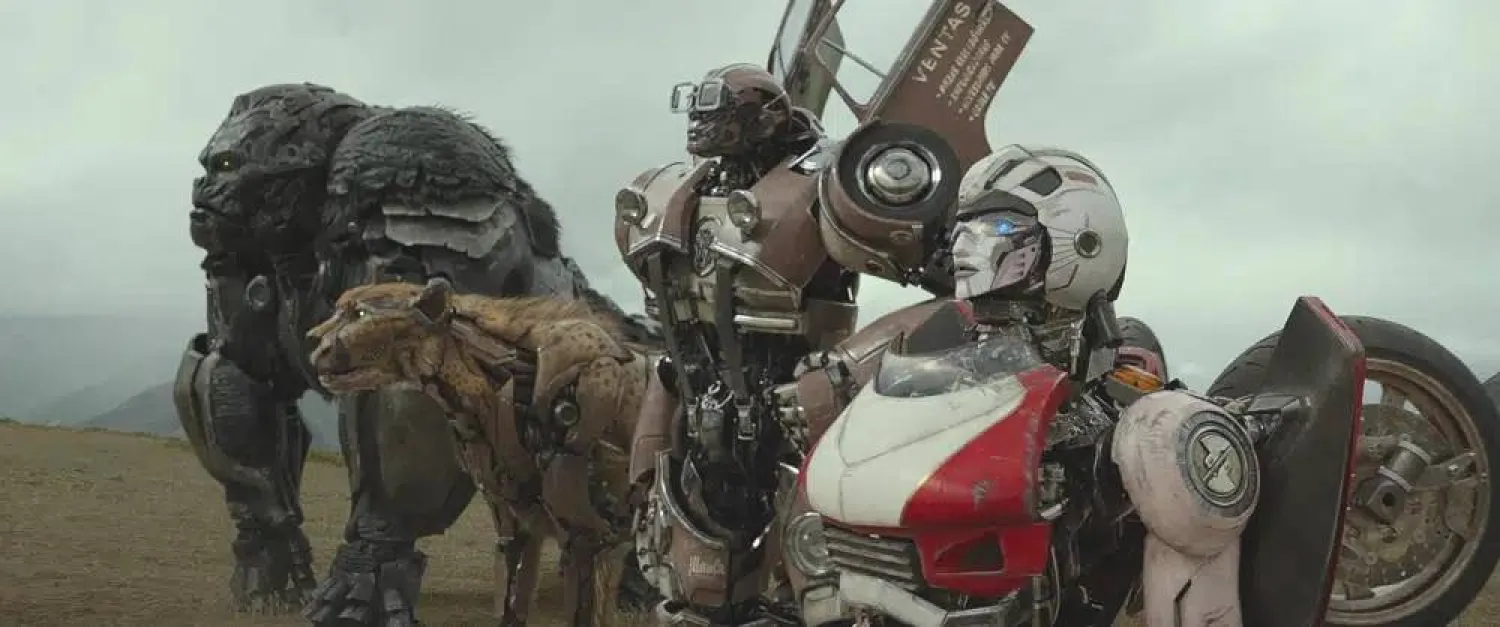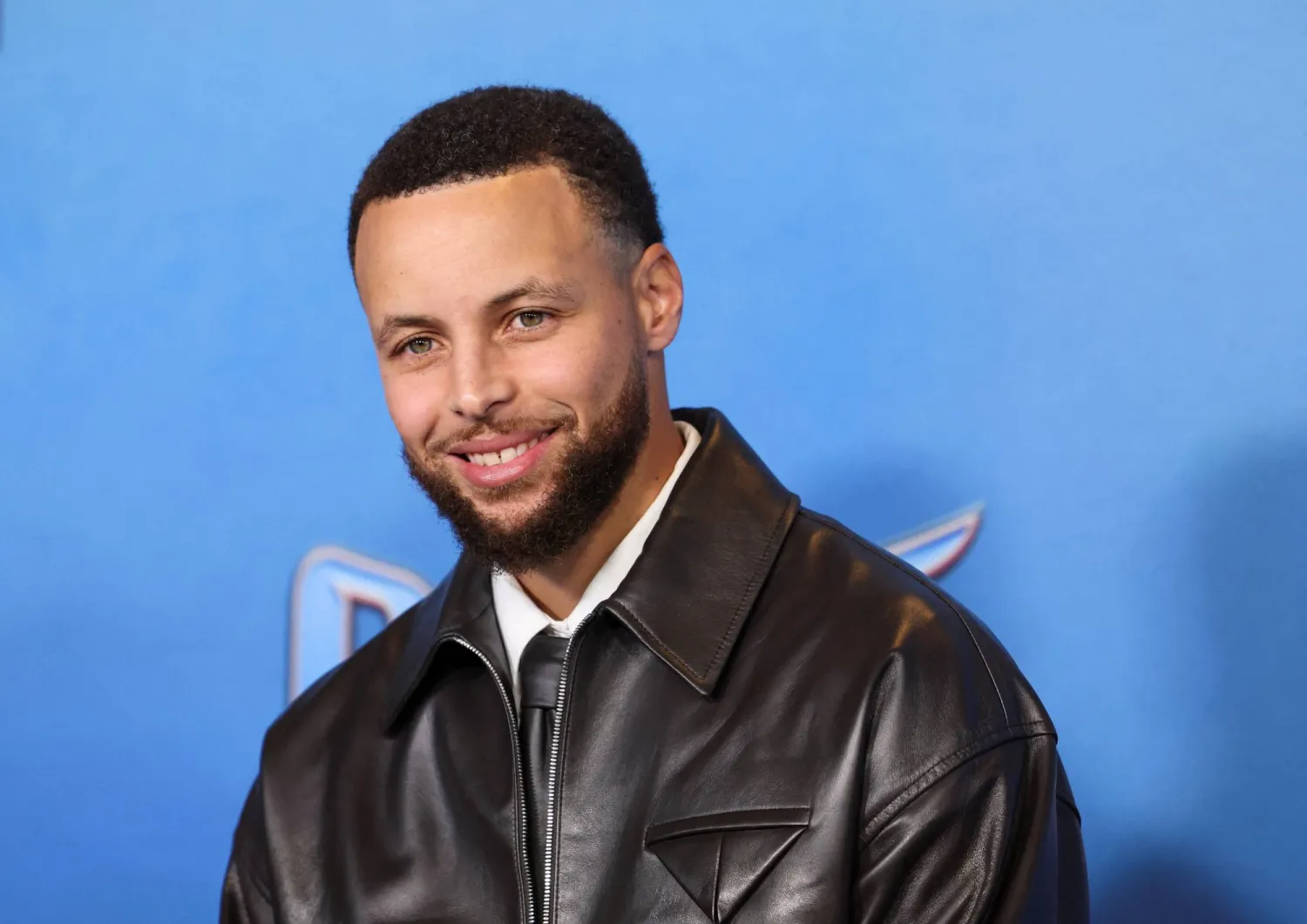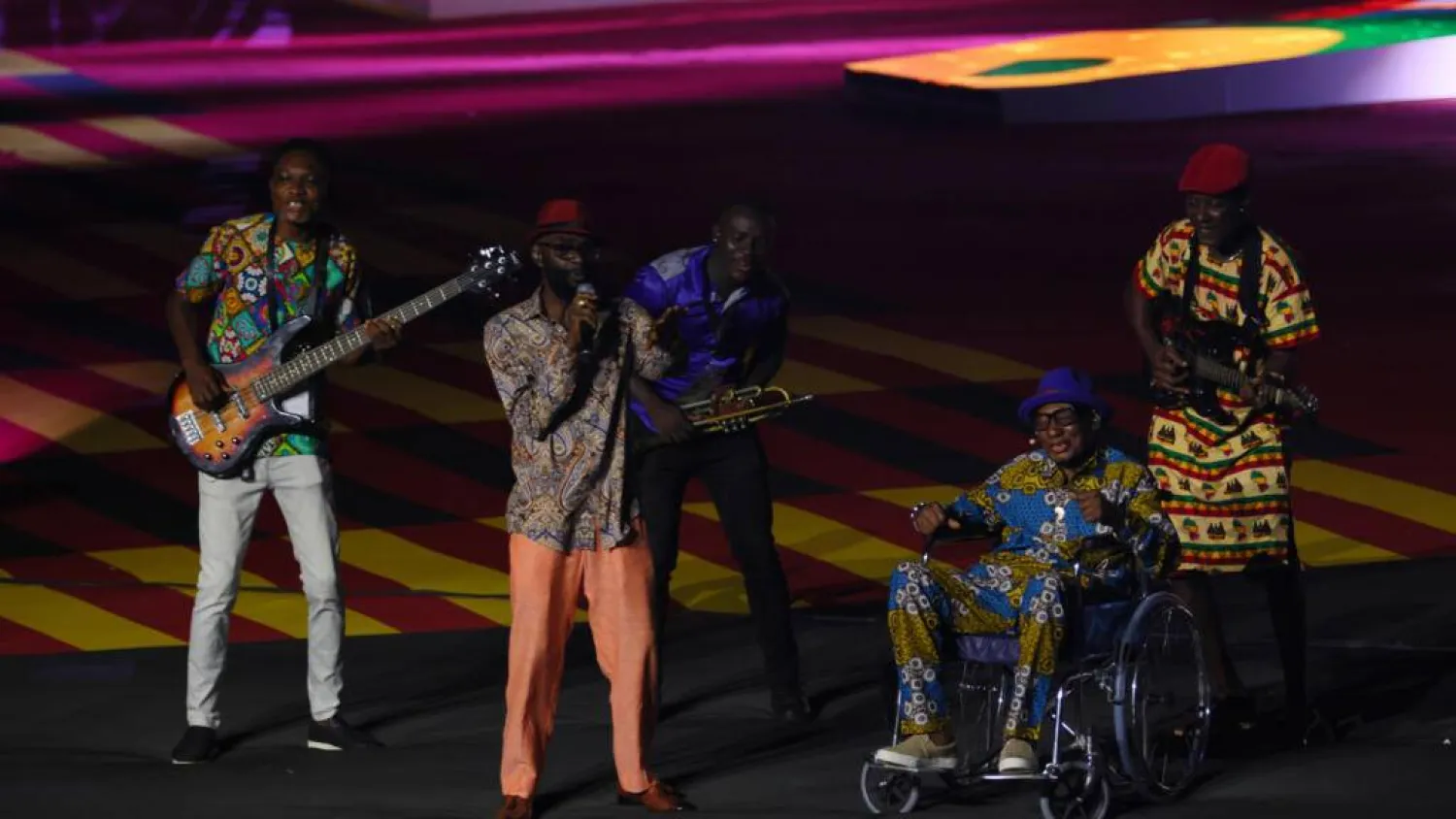With the “Transformers” franchise clearly at a crossroads, its latest protectors have turned to their deep bench of characters. But just adding more robots won’t transform this tired series.
“Transformers: Rise of the Beasts” returns the franchise to its galaxy-wide self-importance after taking a nice detour with 2018′s smaller “Bumblebee.” We have a new cast of animal robots and a very evil enemy in the planet-eating Unicron, but they’re not used right and the movie limps from fight to fight.
The key to the film is actually a key, some sort of ancient glowing shaft that will open a portal in space and time. Everyone wants it — to go home, to kill planets or to save planets. The audience may also want to use it to beam into a more interesting movie.
Directed by Steven Caple Jr. — using a screenplay by Darnell Metayer, Erich Hoeber, Jon Hoeber and Josh Peters based on a story by Joby Harold — “Transformers: Rise of the Beasts” is a big swing that seems to portend a multi-film arc nestled in time after “Bumblebee” and before the first live-action “Transformers” movie.
The problem with “Transformers: Rise of the Beasts” is the same problem faced by all of the installments — balancing the humanity with the metal. “Bumblebee” got the ratios right by bringing the machine down to size.
But a wide gulf between the humans and the giant space robots immediately appears in the new movie, with Optimus Prime being his classic, anal drill sergeant self — “If we are to die, then we will die as one,” he’ll intone. As the movie stutters on, the robots seem to soften only when the beasts show up for the last third — they mourn, get angry, feel protective, love even.
The filmmakers also have tried to bridge the divide with none other than Pete Davidson, who voices the juvenile robot Mirage, a wisecracking, fist-bumping silver Porsche 911 with a less rigid way of expression: “Don’t mess with my boy!” and “Prime, you got to learn how to relax, my man.” It mostly works — best line: “I’m not scared. That’s just engine oil!” — but Davidson seems trapped inside that steel.
The special effects are astounding but sometimes numbing at the same time. The beasts — especially a nostril-flaring gorilla — are gorgeously realized and the baddies look cool as they control elements in space and time, like building sky walkways as they move on them.
Setting the movie in 1994 gives the filmmakers some vintage fun, like adding beepers and references to O.J. Simpson, plus a soundtrack including A Tribe Called Quest and LL Cool J. But even here they get stuff wrong, like using Biggie’s “Hypnotize,” which came out in 1996, and having a character sing “Waterfalls” by TLC a year before it came out.
The Autobots are represented by Optimus Prime (voiced by veteran Peter Cullen), Bumblebee and Arcee (voiced by Liza Koshy). Then there are the Terrorcons, led by Scourge (Peter Dinklage), who controls swarms of horrifying insect robots and says things like: “Rip the flesh from their bones.”
On the puny human side, Anthony Ramos plays an ex-military electronics expert from Brooklyn named Noah, who has a sick younger brother — Dean Scott Vazquez, the best actor of the bunch — and is tempted to criminality to get him proper care. On his first heist, he accidentally gets into Mirage and, after an excellent high-speed chase, meets the rest of the Autobots.
Looking for the portal key, he meets Elena, played by Dominique Fishback, a museum intern with an astonishing ability to recognize everything from a fake Leonardo da Vinci painting to a Nubian sculpture even though she’s never been outside New York. Soon she’ll be roaming ancient tombs in Peru like Indiana Jones.
Real-life friends Ramos and Fishback have talked about their chemistry, but none of it made it onto the screen. Just like the robots, their scenes are overly heightened and overacted, like an intense bubble of distilled humanity between giant robot fights. It’s not clear even what their relationship is — more siblings? Would-be-lovers?
Much too late come the titular stars of the show — the beasts. There’s Optimus Primal, a 13-foot-tall metallic silverback gorilla voiced by Ron Perlman; Cheetor, a cheetah the size of a small truck voiced by Tongayi Chirisa; Airazor, a peregrine falcon who shoots fire, voiced by Michelle Yeoh; and Rhinox, a battering ram on legs, voiced by David Sobolov. The film comes to life with them.
They’ve been hiding out on Earth, too, and a lot longer than the Autobots. They’ve even become sort of fans of us humans: “There is more to them that meets the eye. They are worth saving,” says Optimus Primal.
We Earthlings turn out to have been housing an awful lot of secret sentient robots and this latest clutch arise from the shadows like cicadas at a time when A.I. and ChatGPT are a societal worry. Look, maybe we should be anxious. ChatGPT clearly could have written a better movie.









